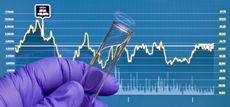Biotech Stocks
The latest news, updates and opinions on Biotech Stocks from the expert team here at MoneyWeek
-

Vaccines inject billions into Big Pharma – how to profit
The vaccines subsector received a big fillip from Covid, but its potential extends far beyond combating pandemics. Here's what it means for investors
By Dr Mike Tubbs Published
-

Should you invest in biotech?
Healthcare and biotech stocks offer tempting valuations following years in the doldrums
By Dan McEvoy Published
-

Investing in UK universities: spin research into profits
UK universities are a vital economic asset, but they are also Britain's 'equivalent of Gulf oil.' There are opportunities here for investors
By Dr Matthew Partridge Published
-

Healthcare stocks look cheap, but tread carefully
Shares in healthcare companies could get a shot in the arm if uncertainty over policy in the US wanes, but are they worth the risk?
By Katie Williams Published
-

UK equities: where to find a great British bargain
UK equities are staging a comeback, but there’s still plenty of value out there, says Rupert Hargreaves
By Rupert Hargreaves Published
-

Cash in on the biotech boom with three promising European picks
Opinion Ailsa Craig and Marek Poszepczynski, portfolio managers at the International Biotechnology Trust, tell MoneyWeek where they’d put their money
By Ailsa Craig Published
Opinion -

Precision-engineered profits: How to invest in genomics
Developments in genomics are enabling the rise of personalised medicine, with therapies tailored specifically for individuals. Smart investors should buy in now, says Matthew Partridge
By Dr Matthew Partridge Published
-

Anne Wojcicki: the daring 23andMe CEO who reached too far
Profile Anne Wojcicki dreamed of a revolution in personal genomics and medicine and set up 23andMe in 2006. Its collapse into bankruptcy provides a cautionary tale
By Jane Lewis Published
Profile -

Cash in on the biotech sector with specialist BioPharma
Opinion BioPharma has an attractive niche in lending to asset-rich biotechnology companies
By Rupert Hargreaves Published
Opinion
